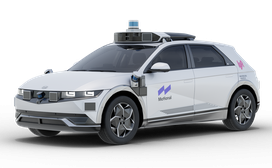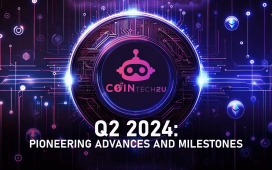What’s the first word that comes to mind when you think about robotics … artificial? autonomous? repetitive? disruptive?
Jennifer Apicella would choose “pragmatic.”
“It is so much more than what we see in sci-fi or entertainment media. Robotics are the power tools of business,” she says.
Apicella is the executive director of Pittsburgh Robotics Network (PRN), a trade association based at the Tech Forge in Lawrenceville. Founded in 2016, PRN promotes news about the region’s robotics industry while providing development support to local robotics businesses.
“Robotics is an evolving and ever-changing base,” she says, “and Pittsburgh is at the forefront of it on a global level.”
That evolution was strongly evident last month at the organization’s second annual Discovery Day when over 4,000 robotics enthusiasts, from elementary students to tech professionals, visited the David L. Lawrence Convention Center to explore the latest in robotics and artificial intelligence.
The 130 main hall exhibitors were organized into four “discovery zones” spotlighting robotics research, manufacturing applications, career pathways and community connections.
“We wanted to showcase the commercial business solutions being used across multiple market verticals by companies here in Pittsburgh,” says Apicella. “It’s a chance for people to see the innovation going on every day behind the lab doors on Robotics Row.”
Apicella joined Pittsburgh Robotics Network in 2021 as director of partnerships and programs following two decades of sales and program management positions at IBM, Blue Light, PGH.AI and Build412 Tech. This October, she was named executive director.
NEXTpittsburgh spoke with Apicella on upcoming trends in Pittsburgh’s robotics sector.
* * *
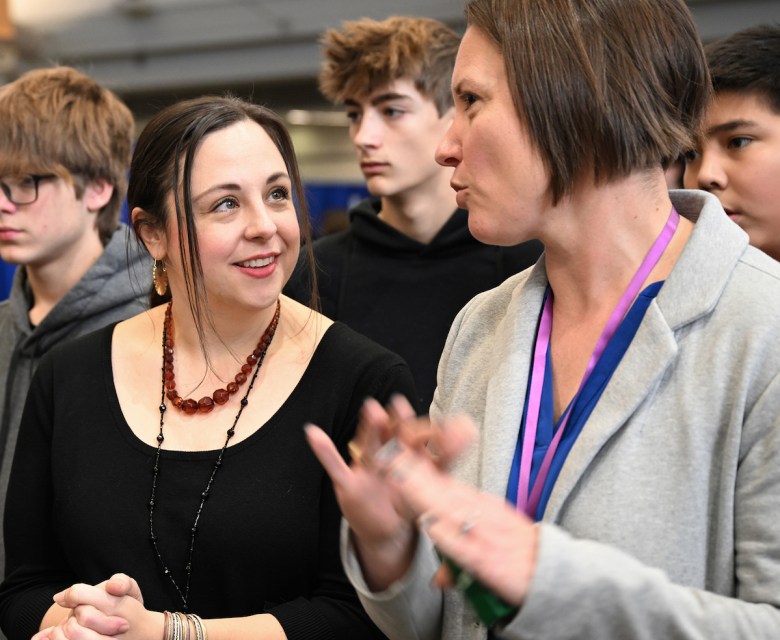

NEXTpittsburgh: What got you personally excited about robotics?
Jennifer Apicella: I’m not a technical robotics person by background, but my entire career has been in advanced technologies on the business development side, program development side, project management side. My passion is helping businesses solve really tough problems with technology that cause them a lot of pain and decrease efficiency. Oftentimes, those technology implementations are complex, multifaceted, expensive and need to scale at an enterprise level.
NEXTpittsburgh: And the societal level, as people adapt to the impact of robotics in their lives.
Apicella: Robotics is changing the way we move, the way we live and the way we work as humans. Modern robotics are not the robotics of decades ago; these robots are collaborative. These robots are meant to help humans the way power tools help contractors.
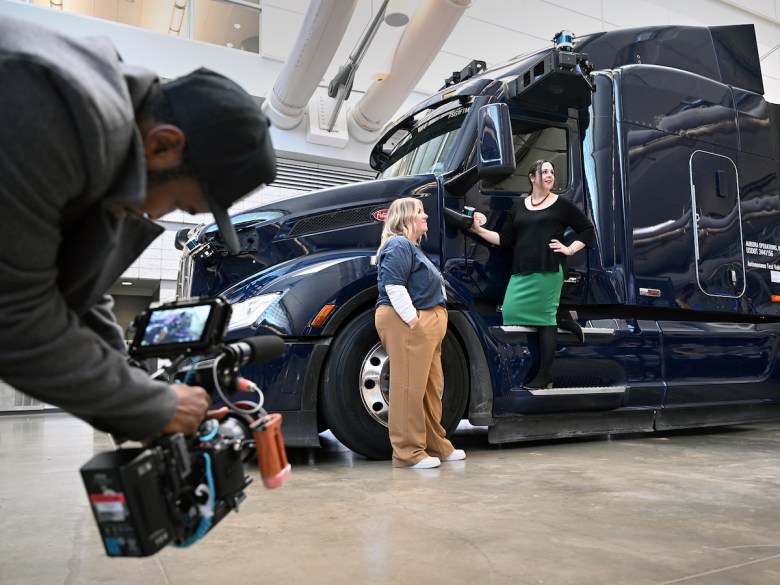

NEXTpittsburgh: What are some characteristics of Pittsburgh’s tech scene?
Apicella: Pittsburgh has a very unique tech scene. It’s very different than some other places in the sense that we have a lot of deep tech, tough tech, a lot of innovation.
NEXTpittsburgh: That term “tough tech” …
Apicella: It’s a specialized field of technology developed by scientists and engineers to tackle existing real-world problems.
NEXTpittsburgh: But a type of technology that might take a while to develop and prove out financially?
Apicella: A lot of it isn’t used broadly “in-market” today. It’s technology that maybe is being teased out and emerging into new markets. It might be established in certain market verticals, but maybe not all.
Because Pittsburgh has a very disruptive, innovative technology ecosystem, it has its own unique needs, its own unique community. As our tech innovators scale their businesses, as things start to commercialize and grow, that’s where we’re seeing a need to demystify what this work is.
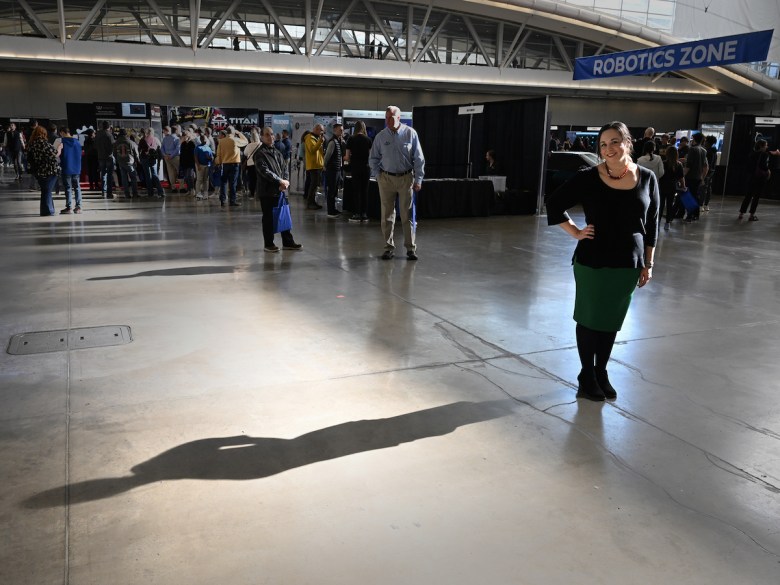

NEXTpittsburgh: What are the challenges robotics businesses face in the near future?
Apicella: We need people to understand that robotics is impactful and not science fiction. The better people understand these technologies and what they do, what they don’t do — and more importantly, who they do it for — the more quickly and easily these technologies can be adopted by businesses.
I think the value proposition is there. Businesses need to be smarter about how they change the way they’re doing things. Robotics and automation is part of that story.
In theory, everyone knows automation will help solve labor pain points. As the labor force becomes more stable and the positions needed can’t be filled by actual people, businesses are going to have to be creative to solve those problems and stay competitive. Automation is just one of those ways.
It’s not replacing people, it’s being more strategic about where they put people in their positions and what those people get to do.
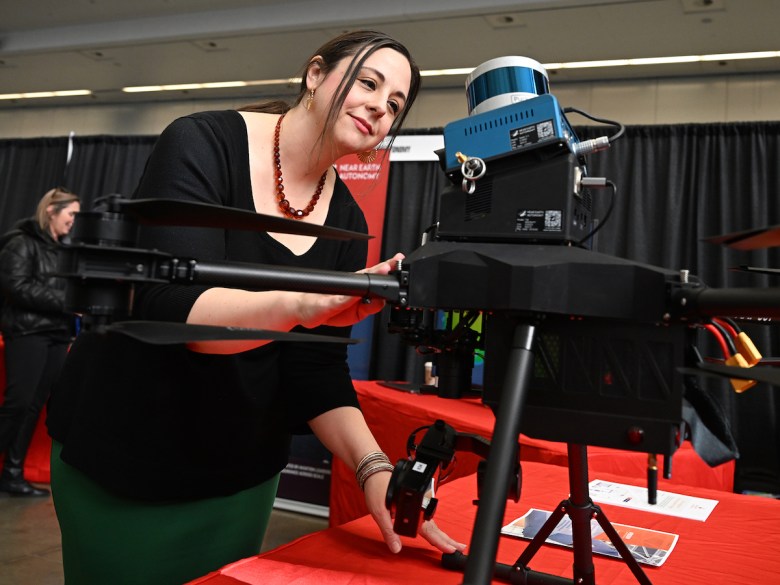

NEXTpittsburgh: I stopped in to Discovery Day and was immediately struck by the wide range of exhibitors and the real-world problems they were addressing.
Apicella: A ton of new workforce and training opportunities in robotics are emerging for the public. We want people to understand that robotics could be for them, that they don’t need a Ph.D. to work in these spaces. If you are someone working in software and you’re not sure what robotics means for your career, you can come in and find out. Are you inspired by something you saw in the robotics or manufacturing zone? Here’s a pathway for you. It could be a rescaling, could be upscaling. It could be starting from scratch. People need to know the role robotics plays in our lives — not tomorrow, but today.
NEXTpittsburgh: How is Pittsburgh Robotics Network involved in the Southwestern Pennsylvania New Economy Collaborative?
Apicella: That is a collaborative initiative set up in support of the $62.7 million Build Back Better grant received from the U.S. Economic Development Administration. It is specifically to bolster our robotics and autonomy sector in southwestern Pennsylvania. We have over 90 labor, education and nonprofit organizations working together to build a strong ecosystem for job training, helping businesses adopt new technologies, entrepreneurs seeking resources and guidance. We’re very grateful to be a part of it.
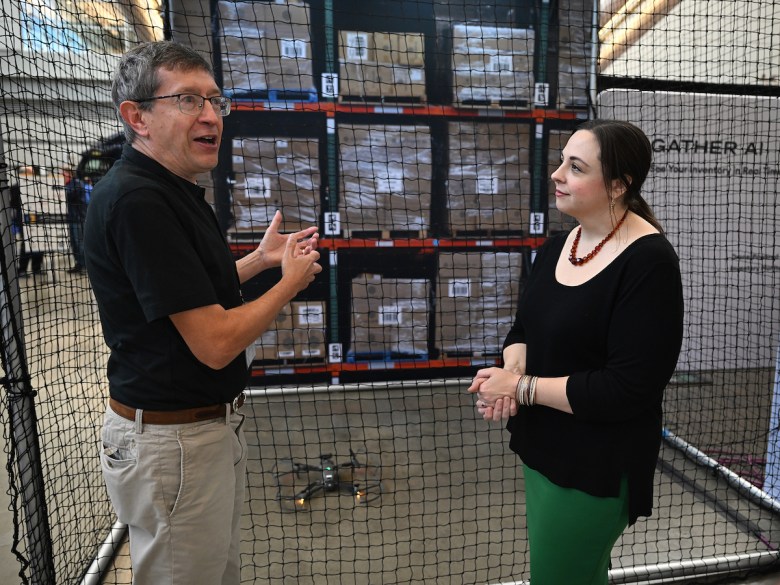

NEXTpittsburgh: Regional collaborations seem to be a trend in the robotics field.
Apicella: Forming partnerships is essential. We are connected now through the [United States Alliance of Robotics Clusters]. That’s Pittsburgh, Boston and Silicon Valley. The Pittsburgh robotics ecosystem is globally recognized, so when I travel around the world and talk to other clusters, I’ve formed partnerships and relationships with some of the more notable, larger, well-established ones. They know Pittsburgh is one of the top robotics centers in the world.
I’m proud of our companies and proud of this community. Pittsburgh should be very proud of what we have here, and we’ll be looking to connect the region more thoughtfully and intentionally with this ecosystem.
I’m very passionate about making the opportunities robotics offer available to the broader community at large.


